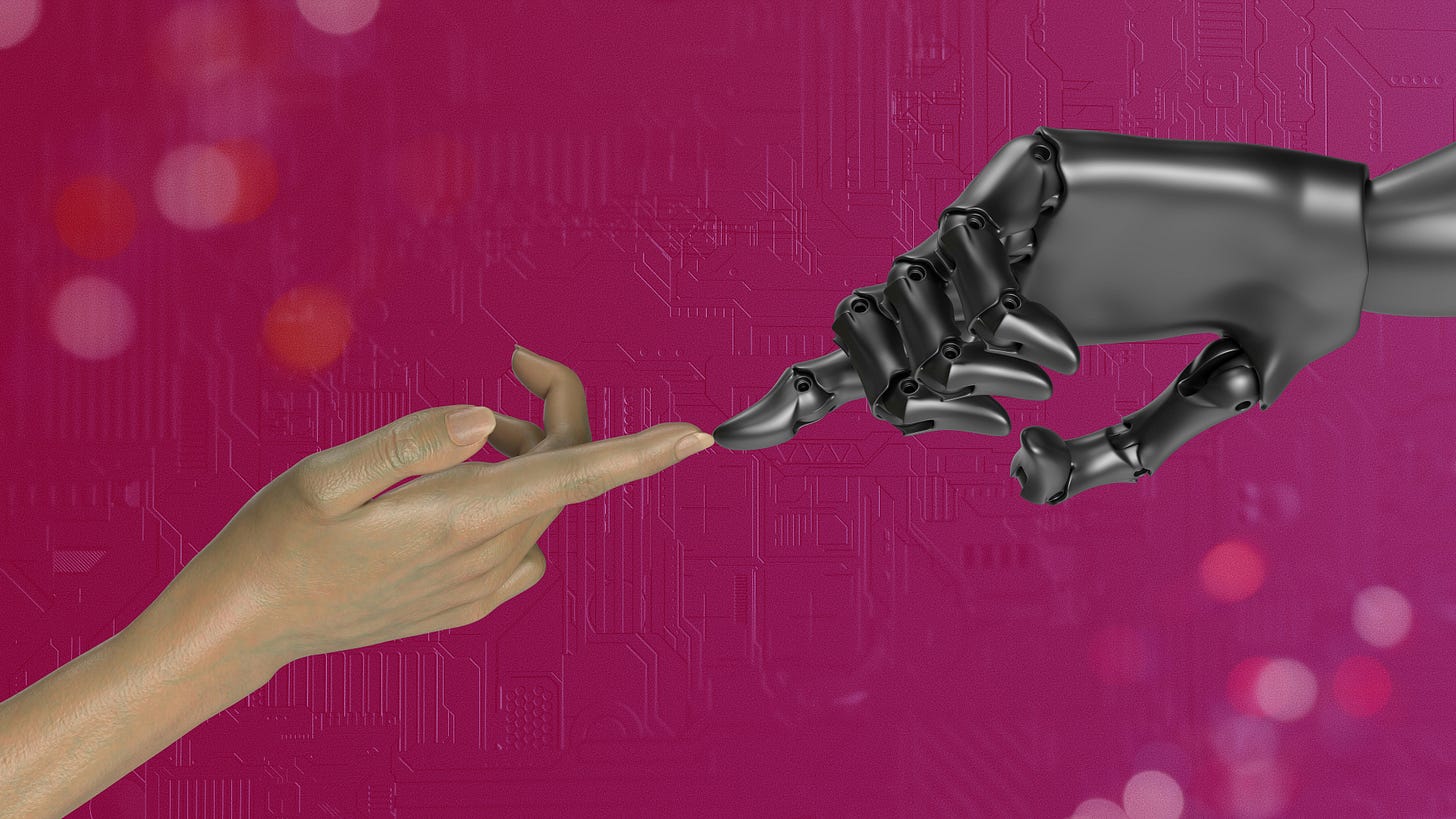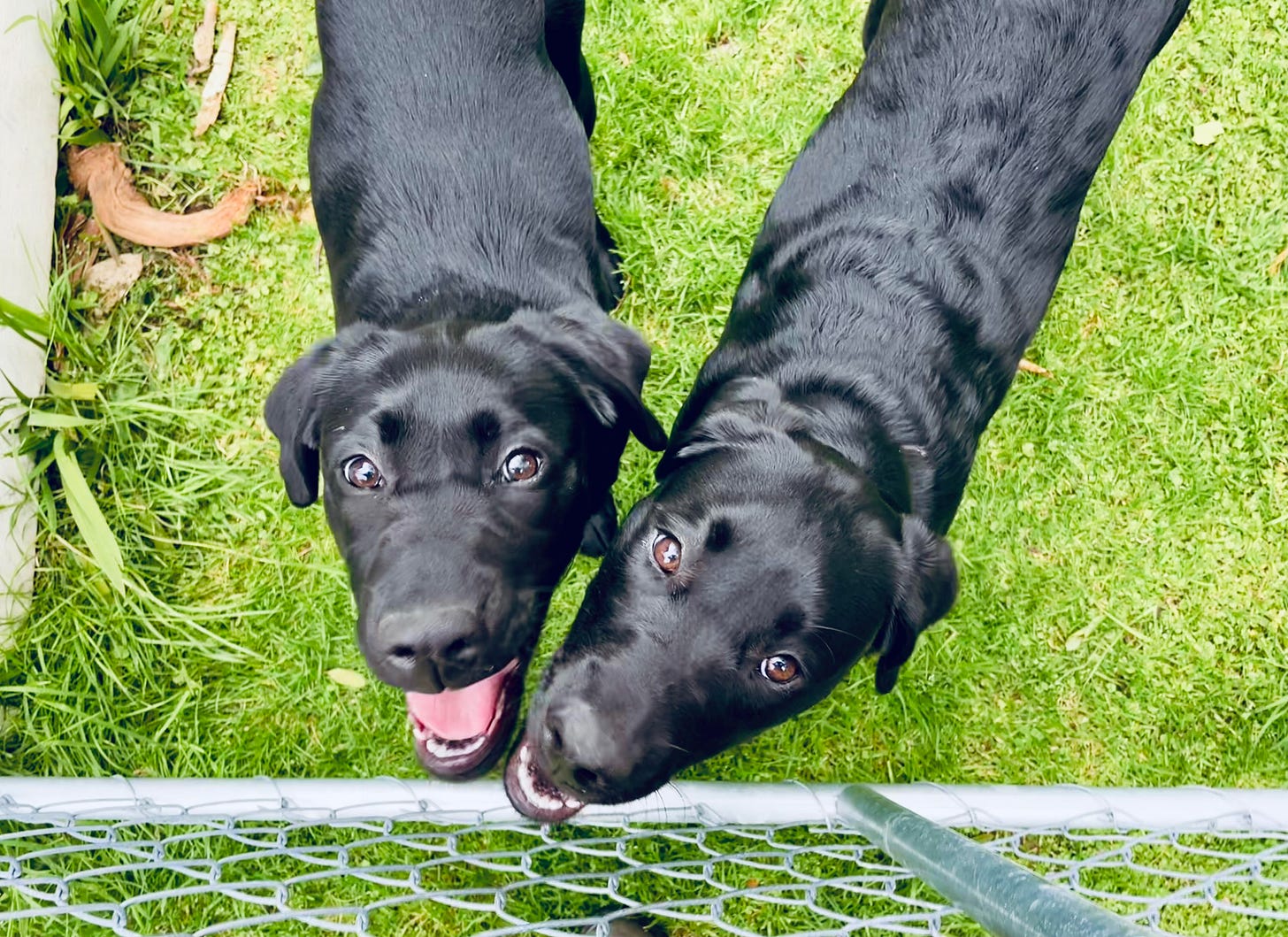Zombies, Bystander Effect and the New Normal
Can cute puppies help us reconnect and save the world?

I was struck after reading Charles’s recent Substack, how so many observant writers now, are paying attention to a complex, but significant shift in human behaviour over recent years. Do read this excellent piece:
In this post, Charles describes an horrific, tragic emergency, where he was first on the scene to help. He explains the sense of confusion, disappointment and defeat he felt witnessing ‘Bystander Effect’ in real time. He was surrounded not by caring fellow human beings (as we all like to assume), but apparently by zombies focused like automatons on their own self-preservation and the GPS on their vehicle dashboards. Groupthink compliance to that little voice told them “Don’t get involved!” (3 min clip):
I’d like to say it was different in New Zealand. But actually, it’s worse: zombies are apparently part of our culture. Kiwi journalist Gordon McLaughlan wrote in 2012, in a new edition to his 1970’s classic ‘The Passionless People’ (review) how, back then, he’d considered:
“New Zealanders [as] ‘Smiling Zombies’ the living dead but happy enough about it, even smug. Then we were still relatively affluent. Time and our integration into the wider world from long isolation have changed our lives dramatically in material ways. But now we are ‘Frowning Zombies’, still the living dead but impotently aware we have been drifting towards social and economic disaster for decades.”
Twelve years later, that ‘social and economic disaster’ is much worse and much wider than anyone could have imagined. He went onto say:
“NZers remain polite, hard-working, superficially cheerful, and unnervingly compliant and complaisant. And we remain dismissive of anyone who makes a fuss about anything. Few of us will stand up for what we may feel strongly about.” (my emphasis) [page13]
If McLaughlan (with his typos) were alive today, I suspect even he’d be surprised at the high levels of compliance from these “grey, frowning zombies” during the covid era totalitarianism. Maybe he’d be horrified too, at his past colleagues’ behaviour in the media, and how their work is increasingly corrupted with propaganda. Maybe not.
One year after McLaughlan’s ‘Revisited’ book was published, in 2013, a book called Zombies in the Academy [free ebook] was published, edited by Whelan, Walker and Moore. The subtitle ‘Living Death in Higher Education’ gives you an indication of the contents, which uses the philosophical theory and concept of zombification as a way of defining and addressing…
“those processes within the university – and the public sector at large – which, in instrumentalizing action (teaching, research) in the service of pseudo-market principles, decapitate the real ends of that action, while reconstituting the means as a kind of spectral presence of themselves. An undead social space is one in which social activity continues to occur, but as a gruesome and dreary parody of itself, not to meet its own ends but those of its correct and compliant ‘recordation’. (pg 14)
In my experience too, the zombies in academia have led to the death of authentic research and the end to any pursuit of meaningful ‘new knowledge’. In an expansion of this series of ‘Critical University Studies’ John Smyth published “The Toxic University: zombie leadership, academic rock stars and neoliberal ideology’. [book review] Smyth made me LOL when he describes the ‘stupidity’ of management leading the UK REF (and in NZ the PBRF) where the ‘Tinkerbell Solution’ is used to attempt to define a ‘quality journal’ publishing ‘quality research’. Like children (academics) can clap to confirm their belief in fairies, which must mean fairies exist?!

This zombie, psychopathic syndrome is evidenced everywhere, including in local council meetings, where Council Watch groups point out how staff constantly ‘clap themselves’ and insist on looking in the rearview mirror believing it provides a roadmap for future spending and budgets. The undead are unaware of reality.
But returning to observing everyday New Zealand zombies (present company excluded of course), for a few years now I’ve been a volunteer for a local dog rescue charity. But walking and exercising puppies (of all ages) in and around my community has changed in recent times. Strangers, upon seeing an excited young dog, obviously being trained to walk on a lead and sit safely at a roadside kerb, ‘normally’ would make eye contact with me, show a big smile and engage by asking things like: “oh, what’s her name?” and “how old is she?” The ‘so cute’ puppy may even benefit from having some social interaction, with the stranger and/or with the stranger’s dog.
But in the New Normal™ this doesn’t often happen.
In fact, 95% of people puppy and I pass by on our daily walks, have their eyes stuck to their phones, and we’re left wondering whether they even realized we were there at all? This is not only their loss, but a loss for us too. And my experience tells me that my puppy won’t be as de-sensitized and well socialized as previous dogs I’ve rehomed and owned.
This brings me to my final point and a more serious concern. This is about our future, trying to survive in a world full of perpetually zombified people. Last week a professional carer for adults with learning disabilities, told me what happened when he took some take time off. He’s conscientious and works hard at building rapport with these vulnerable patients, who often have complex mental health needs. One patient he supports can self-harm if she’s not encouraged to keep to a healthy routine of activities, meals and social interaction. But when he wasn’t there as her usual carer, a relief staff member was busy staring at their phone for hours rather than focusing on her patient’s individual needs. Tragically, even though that relief staff member would have heard their patient self-harming, they did nothing to stop them and provide the basic, essential emotional comfort. Fortunately, the injuries weren’t too serious in this case. But if carers paid to look after other vulnerable people, are now nothing more than zombies too, what hope is there for us? These aren’t just ‘bystanders’ waiting to be told how to behave - this is their job!
Here’s some hard questions to finish on: How can we reconnect with each other and help any ‘zombies’ to reclaim their authentic presence in the real world? Time is running out, and things are getting worse: How can we educate others about their addiction to BigTech and provide some practical steps towards breaking this lethal habit? What is happening to children who witness this zombie behaviour and assume it’s ‘normal’? What are teachers doing to combat this problem?
How can we help humanity to step back from the brink?





I don't think we can reconnect. It's not just tech zombies - it's everyone who still has an unshakeable belief in the official narratives around covid and hold to the "If it's not on TV/in the paper it's not true". We weren't jabbed (and haven't had covid) and friends of 40 years plus (let alone family) put up the shutters if we try to present evidence of the physiological and economic damage that is the result of the whole fiasco. So it's easier not to see these once dear friends because there are so many no-go areas and what we're left with is superficial chat. We now have different communities born out of the necessity to find "safe places" but we mourn what we once had.
Nice essay.
I find myself retreating from society because people are incredibly hostile, or perhaps I do not understand the 'new rules.' The other day some children were bouncing a basketball that escaped them and rolled down a steep hill. I was just walking by and I said 'hang on, give me a minute - I will go and fetch your ball.' After chasing the ball and even lying on my back to retrieve it after it was wedged under a car, I said from the bottom of the (very steep hill I would have had to walk up again) 'give me a second - I will be right back with your ball.'
The kids went crazy - screaming at me, accusing me of 'stealing their ball' and just generally acting like ratbags because I did not immediately return the ball. The mother came out and started yelling at me as well. Then, upon assessing the situation said "they're just kids, what's your problem" (to me). At this point I was just standing there.
I trudged back up the hill and threw the ball at them without saying a word.
When I take my dog out, she is bitten and attacked by dogs off lead who are 'just playing' leading to expensive vet bills. The people are clueless, glued to their phones and do not care that my dog is bitten and bloody.
I am tired of interacting with people and so choose not to anymore.